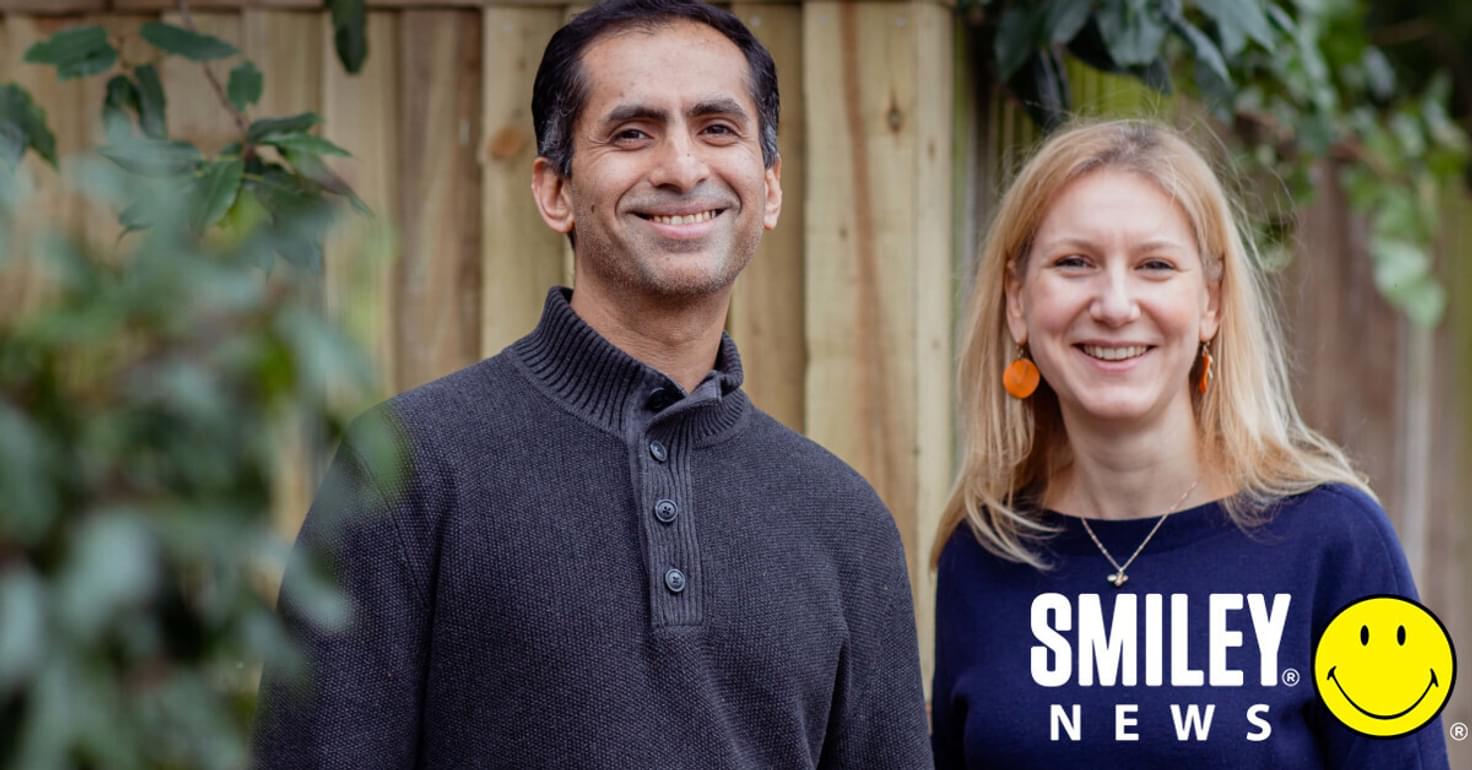
Words by Smiley Team
Putting the planet on track to meet the UN’s Sustainable Development Goals of halving food waste by 2030, food delivery scheme Oddbox aims to rescue 150,000 tonnes of fruit and vegetables by 2025.
The sustainable and ethical retailer sources perfectly edible rejects from the mainstream grocery market and delivers them to the front doors of eco-minded buyers. In doing so, the initiative has saved nearly 11,000 tonnes of fruit and vegetables from going to waste since its launch in 2016.
“We want to see a world where no food – whether “too big”, “too dinky”, “too dimpled” or, as is so often the case, simply “too much” – goes to waste. Which is why we’re excited to be working towards new, ambitious goals,” said co-founders Emilie Vanpoperinghe and Deepak Ravindran (pictured).
Oddbox set out its 2025 food waste goal in a report which also announced its plans to become even more sustainable. The charity will share more information about its customers’ impact, along with tips for how to go zero waste at home and stories about their growers to connect them with the public.
One such story comes from Jack Buck Farms. Their worker Julian explained: “We’ve been growing celeriac since 1986 when we introduced it to the UK. Back then it was only really known in Europe – now it’s a much-loved ingredient in both family kitchens and restaurants. We also grow fennel and chard, and – believe it or not – over 50 million daffodil stems every year. So it’s not all ugly stuff.
“Obviously the last year has put a stop to most of our restaurant trade, so we’re really happy Oddbox has been rescuing our leftover crops so they don’t go to waste. It really makes a big difference to farmers like us.”
In addition to their food waste reduction goal, Oddbox also plans to cut their carbon footprint by five per cent per box of fruit and vegetable deliveries. In 2021 they will transition to electric vehicles, switch their warehouse to renewable energy, and develop ways to maximise lorry space and minimise the number of journeys required.
By 2025 they hope to deliver boxes with a fully electric fleet of vehicles and by 2030 they aim to achieve net zero emissions.
The organisation serves people as well as the planet, donating their surplus to food distribution charities City Harvest and the Felix Project.
These two organisations fight hunger and aim for zero waste by rescuing surplus food and delivering it to vulnerable people suffering from food insecurity in London.
To help tackle food waste while providing disadvantaged communities with healthy meals, donate to the Felix Project or City Harvest.

This work is licensed under a Creative Commons Attribution-NonCommercial-NoDerivatives 4.0 International License